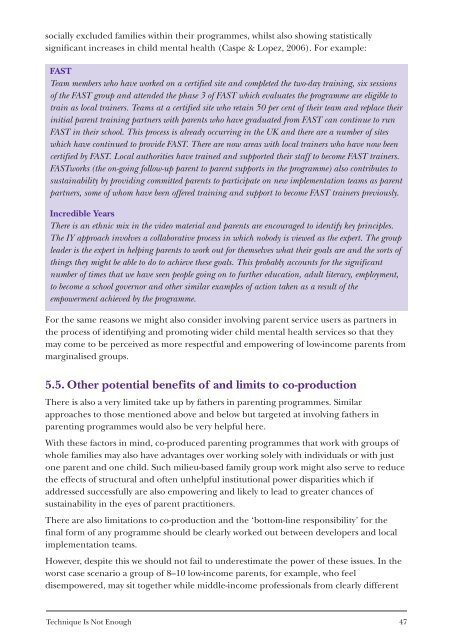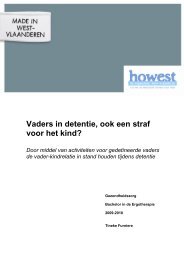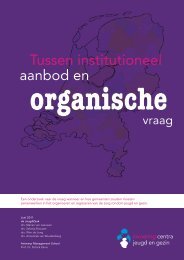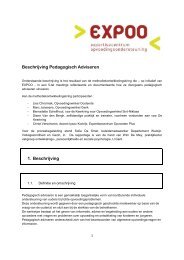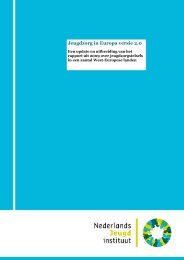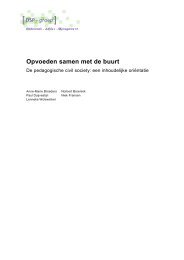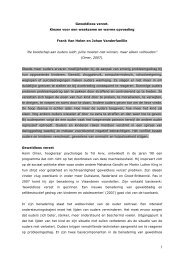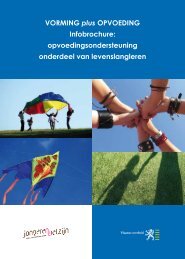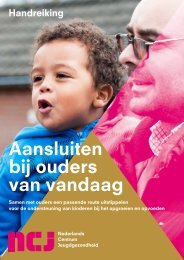Technique Is Not Enough (TINE) - British Psychological Society
Technique Is Not Enough (TINE) - British Psychological Society
Technique Is Not Enough (TINE) - British Psychological Society
- No tags were found...
Create successful ePaper yourself
Turn your PDF publications into a flip-book with our unique Google optimized e-Paper software.
socially excluded families within their programmes, whilst also showing statisticallysignificant increases in child mental health (Caspe & Lopez, 2006). For example:FASTTeam members who have worked on a certified site and completed the two-day training, six sessionsof the FAST group and attended the phase 3 of FAST which evaluates the programme are eligible totrain as local trainers. Teams at a certified site who retain 50 per cent of their team and replace theirinitial parent training partners with parents who have graduated from FAST can continue to runFAST in their school. This process is already occurring in the UK and there are a number of siteswhich have continued to provide FAST. There are now areas with local trainers who have now beencertified by FAST. Local authorities have trained and supported their staff to become FAST trainers.FASTworks (the on-going follow-up parent to parent supports in the programme) also contributes tosustainability by providing committed parents to participate on new implementation teams as parentpartners, some of whom have been offered training and support to become FAST trainers previously.Incredible YearsThere is an ethnic mix in the video material and parents are encouraged to identify key principles.The IY approach involves a collaborative process in which nobody is viewed as the expert. The groupleader is the expert in helping parents to work out for themselves what their goals are and the sorts ofthings they might be able to do to achieve these goals. This probably accounts for the significantnumber of times that we have seen people going on to further education, adult literacy, employment,to become a school governor and other similar examples of action taken as a result of theempowerment achieved by the programme.For the same reasons we might also consider involving parent service users as partners inthe process of identifying and promoting wider child mental health services so that theymay come to be perceived as more respectful and empowering of low-income parents frommarginalised groups.5.5. Other potential benefits of and limits to co-productionThere is also a very limited take up by fathers in parenting programmes. Similarapproaches to those mentioned above and below but targeted at involving fathers inparenting programmes would also be very helpful here.With these factors in mind, co-produced parenting programmes that work with groups ofwhole families may also have advantages over working solely with individuals or with justone parent and one child. Such milieu-based family group work might also serve to reducethe effects of structural and often unhelpful institutional power disparities which ifaddressed successfully are also empowering and likely to lead to greater chances ofsustainability in the eyes of parent practitioners.There are also limitations to co-production and the ‘bottom-line responsibility’ for thefinal form of any programme should be clearly worked out between developers and localimplementation teams.However, despite this we should not fail to underestimate the power of these issues. In theworst case scenario a group of 8–10 low-income parents, for example, who feeldisempowered, may sit together while middle-income professionals from clearly different<strong>Technique</strong> <strong>Is</strong> <strong>Not</strong> <strong>Enough</strong> 47


